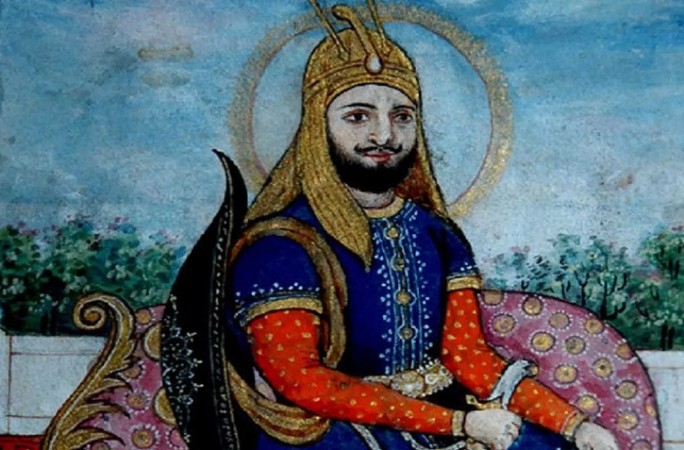
May 22 marks the death anniversary of Sher Shah Suri, a prominent figure in Indian history. Sher Shah Suri, also known as Sher Khan or Farid Khan, was a remarkable leader who left an indelible mark on the socio-political landscape of the Indian subcontinent during the 16th century. Through his visionary leadership, administrative reforms, and military prowess, Sher Shah Suri rose to power and established the Sur dynasty, leaving a lasting legacy that continues to be celebrated today.
Early Life and Rise to Power: Born in 1486 in Sasaram, Bihar, Sher Shah Suri belonged to the Afghan Sur tribe. His father, Hasan Khan, served as a jagirdar (landlord) in the service of the rulers of Bihar. However, Sher Shah Suri's early life was marred by tragedy when his father was killed in a battle. At the young age of 15, Sher Shah Suri assumed his father's position and quickly displayed his military acumen by organizing a successful defense against an attacking force.
Sher Shah Suri's military accomplishments soon caught the attention of Emperor Babur, the founder of the Mughal Empire. Recognizing Sher Shah Suri's talent, Babur appointed him as the governor of Sasaram. However, Sher Shah Suri's ambitions went beyond being a mere governor, and he began formulating plans to establish his own kingdom.
Establishment of the Sur Dynasty: In 1538, Sher Shah Suri seized the opportunity when the Mughal Empire faced internal conflicts and invaded the territories of Bengal and Bihar. He defeated the Mughal forces and established his rule, proclaiming himself as the Sultan of Delhi. This marked the beginning of the Sur dynasty, which would go on to challenge the Mughal rule for several years.
Sher Shah Suri's Reign and Administrative Reforms: During his relatively short but impactful reign, Sher Shah Suri implemented a series of administrative reforms that transformed the governance system. He introduced various measures to ensure a fair and efficient administration, including the establishment of a well-organized revenue system, land reforms, and the introduction of the rupiya, a standardized currency that remained in circulation for centuries.
Sher Shah Suri is also credited with constructing an extensive network of roads and rest houses, known as the Grand Trunk Road, which connected various parts of the empire. This infrastructure development played a crucial role in facilitating trade, commerce, and communication throughout the region.
Legacy and Death: Sher Shah Suri's reign came to an abrupt end in 1545 when he died in an accidental explosion while besieging the fortress of Kalinjar. Despite his untimely demise, Sher Shah Suri's legacy lived on. His administrative and military reforms served as an inspiration for subsequent rulers, including the Mughal Emperor Akbar, who adopted many of Sher Shah Suri's policies.
Sher Shah Suri's death left a significant void in the political landscape of the Indian subcontinent. However, his contributions and achievements are celebrated to this day. His memory serves as a reminder of the remarkable impact a visionary leader can have on shaping the destiny of a nation.
On the anniversary of Sher Shah Suri's death, May 22, we remember and honor the life and accomplishments of this extraordinary leader. From his humble beginnings to his rise as the Sultan of Delhi, Sher Shah Suri left an indelible mark on the history of the Indian subcontinent. His administrative reforms and military achievements continue to inspire generations, reminding us of the enduring power of visionary leadership and the lasting legacy it can create.